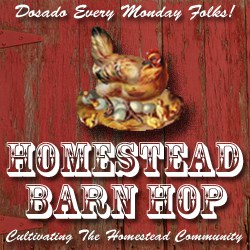We bought the guinea fowl as day-old chicks in December last year. The idea was to raise them to eat the ticks that were affecting our Braford cattle at Cheslyn Rise. I may have over-estimated how easy it would be to get them established on our property. Now that they are 7 months old we can see that they are very different to chickens and we are starting to learn how to manage them.
 |
| .... and when we first got them as chicks |
We recently decided to let them free-range. The first night we were able to herd them back home. The second night was the same. The third night they all decided to fly up into the trees when we got too close. When Pete shook one of the trees they flew up again and one even ended up on the roof of the house! We had to give up and leave them out there. They were all still ok in the morning, and after work we came home to find them all back in their cage! They are very strange birds! Ever since that night out, they have walked straight into their cage, so I wonder what happened to them up there in the trees. They certainly learnt their lesson anyway.
Now we just open the door of their cage each afternoon and they walk around the house yard making that noise. They seem reluctant to fly, and actually forget that they can fly when they do accidentally get stuck on the other side of the fence (just pace up and down until we herd them through the gate). They haven't got into my garden yet. They have walked into the neighbour's property once, but they seem to prefer to hang around near their cage now. In the evening, one person can herd them into the cage with Cheryl (the dog)'s help. We make Cheryl sit on one side of the door, and then herd the guineas around the cage, when they get to Cheryl they stop and turn into the door of the cage. Cheryl then takes all the credit for putting them to bed.
So we are successfully free-ranging the guinea fowl so far. I'm not sure how they will cope with moving to Cheslyn Rise when we're ready (I'm not sure how I'm going to catch them either!). I just wish they would go further away from the house sometimes, because that noise is incredible.
Do you keep guinea fowl? Do you let them free-range? Any tips or funny guinea stories?








We had 4 guineas and the sound was incredible, I thought it was a machine running, kind of a cicada noise. They calmed down some but still sounded alarm for no apparent reason. The easy way to catch them is to feed them in a small building or coop for awhile then shut the door when you want to get in and catch them. We let them free range and they roosted in a high tree and would roost with the chickens if it was freezing rain and ice. They may not stay where you put them as they seem to be more wild than chickens.
ReplyDeleteI would be happy for them to live in a tree, but they always seem to huddle on the ground, even though they have a perfectly good cage to sleep in safe from predators.
DeleteOh that is a loud sound! Clever way of herding them using the dog, in fact it sounds as though you have a clever dog! do you eat their eggs? You might in fact get used to the noise over time.
ReplyDeleteapparently you can eat the eggs, but I don't know if they are laying yet (I haven't found any eggs anyway, the dogs might have).
DeleteThey will probably naturalise on your larger property. I've heard stories about wild flocks of guineas roaming our area - although they prefer the much larger 80-100 acre blocks. Our 5 acre plot streets are too busy for them and they don't like the domestic animals.
ReplyDeleteI've had roosters and their noise was bad enough, which is why I decided not to get guineas when I heard of their infamous reputations! Still, in the right location, they fit very well in the environment.
that would be ideal, especially if they choose to live deep in the bush and away from the house!
DeleteI've always said the guineas are the lawyers of all the farm fowl. When they get after you, they do it again to make sure you know it. I like them; they are better than a watchdog. They aren't cuddly and do as they please, but they do eat bugs, snakes and watch out for the other fowl. They aren't very good mothers though and a biddy will hatch them out and raise them better than the guinea moms. They will eat out of your hand when they get older and more trusting.
ReplyDeletewow, I can't imagine mine getting THAT tame! We will see...
DeleteThey are strange animals but we wouldn't be without them. Ours are nicknamed The Dosties after Dostoevsky's The Idiot.
ReplyDeleteThey do seem to get less noisy as they get older, ours were quite noisy for the first 12 months, now they just seem to carry on when something is around. They are stupid though, if you put something out of place near the door to their pen, they won't go in, and they are notorious for walking up and down a fence instead of walking through the open gate right beside them. After the fox decimated most of my chickens and guineas, the remaining ones now sleep up in the trees, which I am fine with. As for catching them, do it at night while they are asleep, they are such wild things and just go bonkers if you try and catch them during the day!
ReplyDeletethat is good advice, I picked one up the other day and it went mad, there were feathers everywhere, I will leave it for night time now! I do hope they get quieter, but they are further from the house now, so its not so bad, just a worry that they are now visiting our neighbours!
DeleteI've always shut my guinea fowl in with my hens at night, though if I'm late feeding and shutting up then they disappear back out to roost in the trees. The main thing to remember with guineas is that they have very small heads and therefore very little brain! I think they do get quieter as they get older and the only time recently that mine has made a real racket was when a fox was chasing the hens and he sounded the alarm.
ReplyDeleteYour guineas have beautiful colouring.
yes they certainly do have small brains!!
DeleteReally interesting to read about your guinea fowl. When we moved to our current home 3 years ago, there was already a semi-wild guinea fowl living roosting in our oak tree (he was the last one remaining of 6 guinea fowl who had been left here by previous owners years earlier.) We put feed out for him and loved seeing him pottering around (he mainly walked rather than flew too) but he was very old and sadly didn't make it though last winter. Really keen to get more along with chickens so will be interested to read more about yours.
ReplyDeleteoh, that's a sweet story, they're probably not so bad when its just one, I think they set each other off when they're in a group!
DeleteA friend on mine had guineas, she would complain about them being on her roof and waking them up in the mornings.
ReplyDeleteShe didn't keep them around :)
Thanks for all the comments, I will continue to update you on the guinea fowl, they are so different to chickens, its been interesting to raise them and get to know them!
ReplyDeleteIf you feed them each night when you put them in the coop they will be easier to put to bed. When you move, keep them cooped up for a couple of weeks before letting them free range again. And my favorite: "all guineas share one brain, and today isn't your birds' day to have it."
ReplyDeleteThank you for sharing on the HomeAcre Hop; I hope you'll join us again this Thursday.
~Kathi
I've had them on several occasions. They are loud but awesome. Mine travel behind our 7 horses and we have 0 horse flies or stable flies. Ours are semi wild sleep in trees. They are way better at evading predictors than chickens.
ReplyDelete